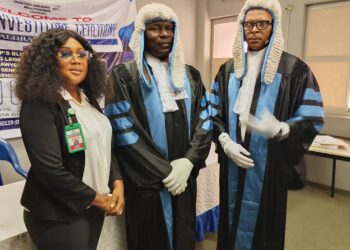In politics, context is everything. Symbols matter. History matters even more. The people of Yagba Federal Constituency, since 1999, subscribed to an informal yet powerful code of rotational representation. It was not enshrined in law, but it has served as a moral compass and stabilising force, a gentleman’s agreement rooted in fairness, equity, and a certain communitarian sense of justice. But today, in the face of increasing ambition and political brinkmanship, that structure is under threat.
Let us dispense with the false niceties and address the matter plainly. In 1999, the Federal Constituency seat in the House of Representatives went to Hon. Shola Ojo from Mopamuro. Four years later, it moved to Hon. Tolorunju Faniyi from Yagba East. Another four years down the line, Hon. Samuel Aro of Yagba West took over. That was one full round, every local government had had its turn. It worked. The logic was simple: share the seat, reduce tension, and promote inclusiveness.

Then came the second cycle. This time, it was open to all three LGAs. Yagba West, again, clinched it through Hon. Sunday Karimi, who served two terms, eight years. When Karimi chose not to seek a third term, he was hailed as a man of principle, one who understood that leadership is not a personal estate. The understanding was clear: it was now the turn of either Yagba East or Mopamuro.
The contest was fair. Candidates emerged from both areas. The people chose Elder Leke Abejide of Yagba East. He won. In 2023, he won again. With Faniyi’s earlier four years and Abejide’s two terms, Yagba East would, by 2027, have enjoyed 12 years in the Green Chamber, the same as Yagba West. Mopamuro, the smallest of the three, remains stuck at four years.
And now, the story we are hearing is that Elder Abejide should go for a third term. We are told he is “nationally visible,” that his “capacity” is unmatched, that he is well-positioned to become Speaker of the House. But we have heard all this before. It is a well-rehearsed script. Senator Smart Adeyemi was sold to us on the same promise, “He’ll be Senate President,” they said. He wasn’t.
At the heart of this matter is not whether Abejide is competent. He is. The issue is not whether he has performed. He has. The real issue is what happens when politicians begin to tear up the moral fabric of the very community they claim to serve. What happens when ambition becomes toxic, and honour is sacrificed on the altar of self-preservation?
Mopamuro is not asking for a favour. They are asking for fairness. Equity. Inclusion. Their demand is not only legitimate, it is also logical. If the idea is that each LGA should have a fair opportunity in every rotation cycle, then 2027 is Mopamuro’s turn. Anything else would be political injustice wrapped in the cloak of entitlement.
What kind of message do we send to young people in Mopamuro if, after waiting patiently, they are told again that their turn must wait? What does it say about the maturity of Yagba’s democracy if the smallest local government must continue to play the role of a permanent spectator?
It is ironic, tragic, even, that those who have benefited most from the rotational arrangement are the ones now working hardest to destroy it. Their new justification is that “power is not zoned,” that “the people should decide.” Very well. But the same people decided to abide by a rotation. They chose equity. They chose peace. Must we now pretend history does not exist?
The danger here is not just about who wins an election. It is about undermining a working system of power sharing that has kept Yagba relatively stable in a region where political contestation can easily become combustible. When politicians break unspoken agreements, they don’t just provoke dissent, they invite chaos.
2027 must not be about recycled arguments or inflated egos. It must be about righting a wrong. It must be about restoring balance. Mopamuro deserves a turn. Not as compensation, not out of pity, but as a matter of right.
Elder Abejide, if he still holds the ambition of a statesman, should resist the temptation of a third term. He has served with distinction. Let that be his legacy, not the man who broke the peace of Yagba.
As Chinua Achebe once wrote, “A man who does not know where the rain began to beat him cannot say where he dried his body.” Yagba must remember its history, lest it lose its soul.
Fagbamila Johnson Olawale














